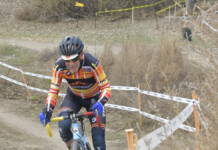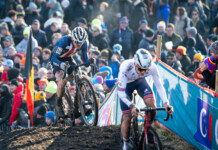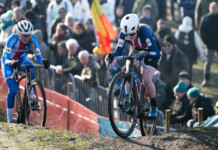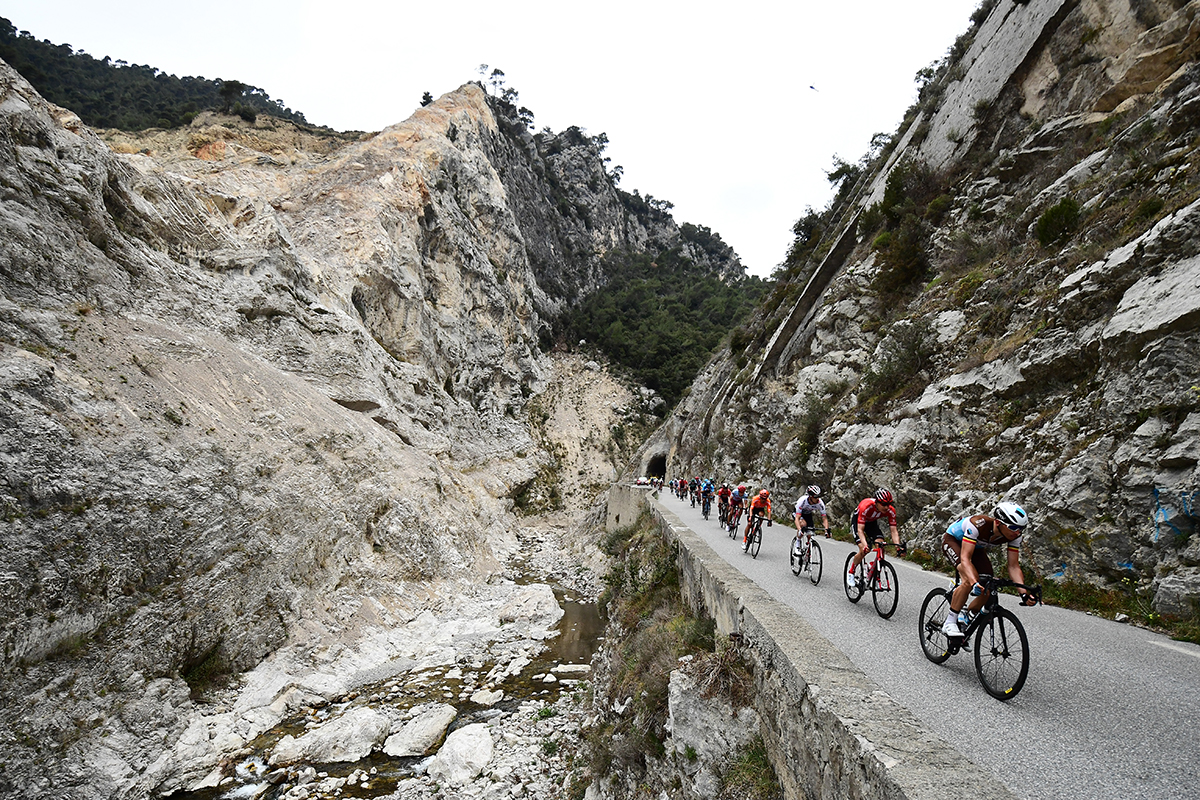By Lee Waldman — My “career” as a bike racer began at the ripe old age of 30, in 1980 for those of you keeping score. Cross didn’t appear in that picture for another 5 years. That’s 37 years of cyclocross experience under my belt! And following each one of those seasons, I’ve looked back and been able to see change. Maybe that proves that my cross-learning curve has been flat. But it’s the complexity, and the beauty of cyclocross, that has kept me interested and motivated. There have been good years and mediocre years. The learning, even when I struggled, was worth whatever price I paid in frustration and disappointment. Epiphanies have been plentiful, and I thought I’d spend some time sharing them. Some may strike a chord. You might find yourself shaking your head in agreement, recalling a similar experience. Some might be new. Some might make you think. I hope they’ll make you think, and I hope that they will make you smile and appreciate gift you’ve been given; to be a cyclocross athlete.
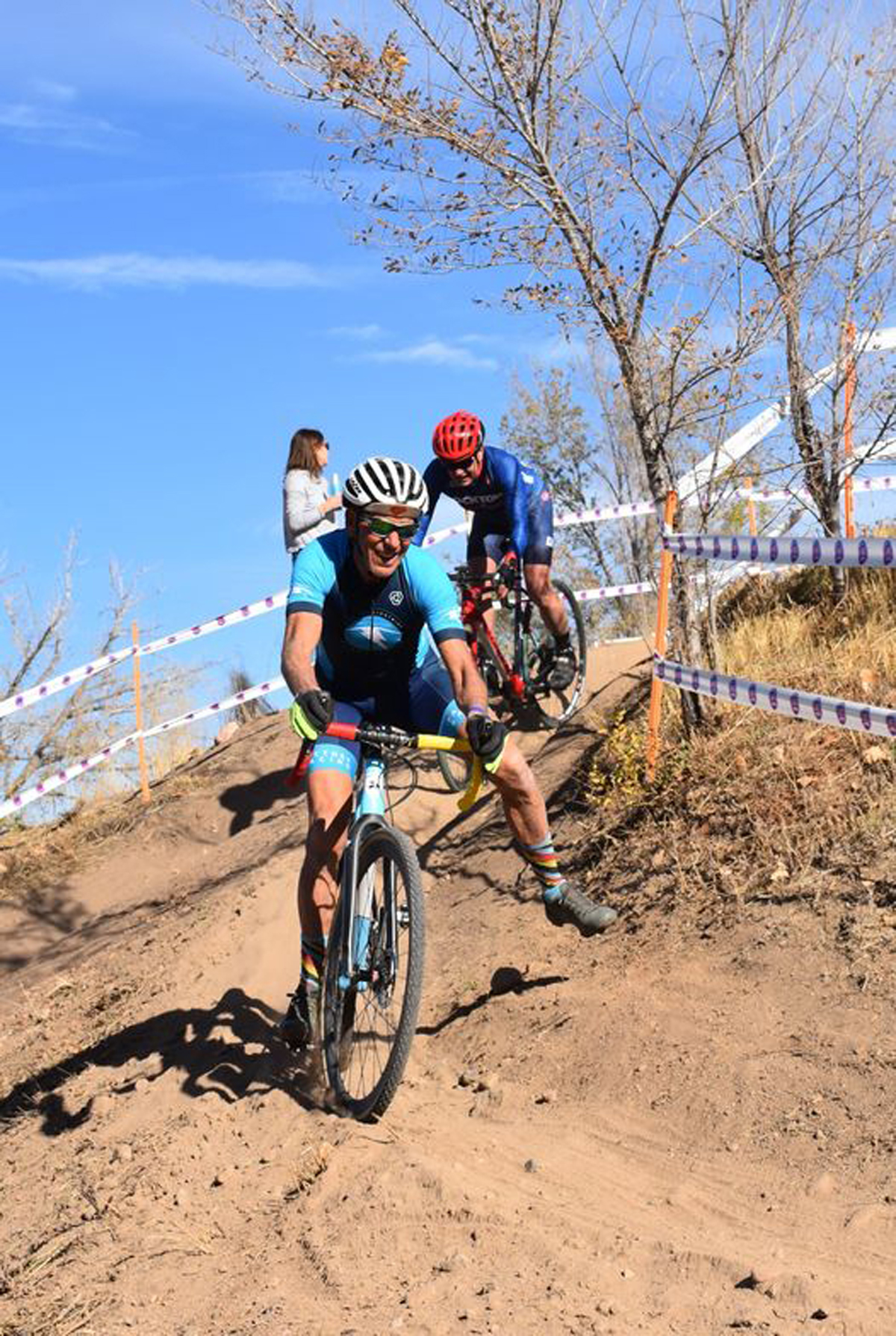
I don’t use the term athlete lightly, but it has led to one of my most recent epiphanies. Six years ago, I had the unfortunate experience of rupturing all three hamstring tendons while racing. The following year a hit and run driver cracked my sternum, broke six of my ribs and cracked my C1. I could have been killed that day. I could have ended up in a wheelchair, but the Universe had other plans. The rehab and recovery from each injury was longer and more challenging than I expected. In a way though, it was a gift. I had, until then, defined myself as an athlete only through competition, more specifically, through success. Because of those injuries I was forced to closely examine exactly what it means to be an athlete and through that process came to understand the most important lesson I’ve learned in all those decades of racing: Being an athlete is a mindset. It’s about how you look at yourself, how you approach life both in and out of competition. My self-worth, until then had been closely defined by my racing and winning. Suddenly, racing was a mental and a physical struggle. The question became, who was I? Was I still an athlete? Through lots of work and an equal amount of soul searching I was able to finally understand that the key to being an athlete is the commitment and dedication. That was a true epiphany.
In the 37 years that I’ve raced cyclocross I’ve had plenty of those. Some have been mental, others physical. The sum total has brought me to the place where I can look at myself and honestly say, “I think I’m getting better at this”.
Cross provides opportunities to learn and hone the craft of riding a bike. Our first epiphany comes when we line up for our first cyclocross race. We come away understanding what it means to suffer like a dog. We’re forced to decide if it’s worth it. For me, it was an easy decision, not because I was particularly good, but because I’m of the mindset that, when presented with a challenge, I’ll turn myself inside out to meet it.
The next epiphany comes after a couple of seasons. You’ve mastered dismounting the bike without tripping over it and the dreaded hop no longer occurs when remounting. You’ve realized that the only way to get over that fear of hurting yourself is just to “do it”. There’s no trick, there’s just courage, the thread that connects the learning and growing from there forward. Without courage, we’d never improve. It helps to build that confidence which allows us to take the risks needed to improve.
Therein is the next epiphany. Cyclocross, like life, is all about taking risks. It’s risky to ride full speed into a barrier section with the confidence that you’ll be able to unclip in time. It takes the same amount of courage to launch down a descent that might qualify as a black diamond if it were a ski run. It’s taken me years to learn to trust my tires and although it’s counterintuitive, one of my recent “discoveries” is how much better a tire grips at 23 pounds than at 33.
This next was one of the hardest for me to learn. As you age, and I’m there at 72, the more you have to pay attention to rest, recovery, and healing. When you were young, rest wasn’t critical. Training day in and day out didn’t present a problem. Over those injury plagued seasons, I’ve had the painful and frustrating experience of having to overcome obstacles that pushed me close to the brink physically and emotionally. I didn’t fully appreciate at the time, the difficulty of recovering from the types of setbacks I’d experienced. I felt fine physically after a short, or relatively short, period of recovery. But the lingering effects were evident in my mental approach to training and. It’s just been recently, that I actually felt ready to race my bike again.
One of the biggest and most recent ah-ha’s for me has been the necessity of bringing balance to my approach to racing. We all want results. For some that desire to prove to ourselves ultimately gets in the way of our enjoying the experience. We learn to dread every race because we see it as an opportunity to fail rather than a chance to experience life to the fullest extent. My learning has been how truly valuable the chance to compete is; to be in the moment and mindful of how good it feels even when suffering, and to relish the opportunity to “succeed”, even when success simply means lining up to race and doing so with a smile on my face.
In sport, and life, as you learn and grow, there are those practical epiphanies following on the heels of experience. I’ve had my share, most often when relating cyclocross to some other physical activity. My wife and I were serious ballroom dancers for over 10 years. Before that I skied seriously for almost 20. The lessons learned in both served me well as a cross rider.
Dance is about balance, poise and focus on the present, as is cyclocross. Since the terrain does its utmost to throw us off balance, the more we can keep in the moment and aware of our position in space relative to the ground and to the bike, the better we ride.
Technique through corners has challenged me from day 1. Cross is about power and strength but also about smoothness and technique. A good rider may be having a bad day, but with the proper technique, that bad day physically can be overcome. My most recent “discovery”, came while daydreaming about the similarities between carving turns on skis and on the bike. When we carve a turn on snow, all of our weight is on the outside ski. Sometimes we need to lift the inside ski off of the snow and point the knee in the direction of the turn. What if I pulled up on my inside foot while cornering in the dirt and tried to feel the pressure on the sole of my outside foot and the instep of my inside foot? It worked!
I keep coming up with these epiphanies that have positively impacted my racing and in some respects, my life. First of all (this comes from yoga but fits with sport), be in the moment. There’s no reason to think too far ahead while trying to ride a cross bike fast because if you do, you are not focusing on what’s right in front of you. That doesn’t mean that you shouldn’t be strategic and plan for what’s coming up. How you enter and exit one section of the course definitely impacts the following sections. So, you need to be in the moment to prepare for what’s coming next. But thinking too far ahead creates more problems than it solves. It shifts you concentration and leads to mistakes
One a different note, no matter how old you are, having a coach if you can afford one, is tremendously helpful. I’m one of those athletes who, left to my own devices, will regularly overtrain. I’m the overtraining poster child. When I finally made the decision to hire a coach, all of the guesswork was removed from my training. I don’t have to wonder if I’m doing the right things to prepare for and to recover from racing. I just follow the directions and things seem to work out.
Probably the most important of all of these “discoveries” is this: remember, we race for fun! Most of us will never earn a dime racing but in reality that isn’t why we race. It’s the camaraderie, the sense of family, f the fitness it brings and the longevity that’s a result. And if we forget to allow ourselves to bask in the glory of simply being athletes and risk takers, then we’ve truly missed the point.
OK. I’m done for the day. Go out and ride your bike.


